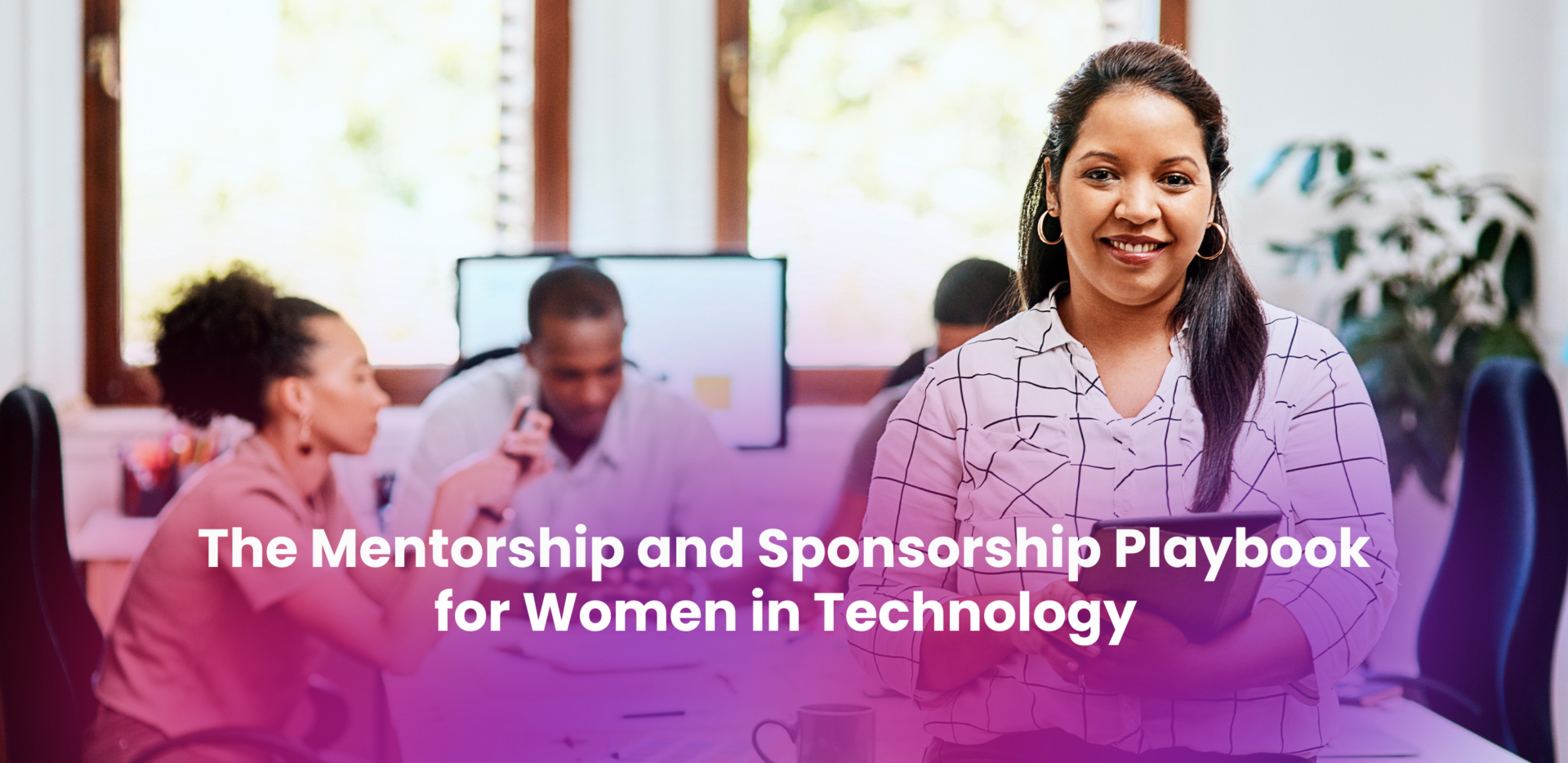Mentorship and sponsorship are extremely important components of the career success equation, often more important than people realize. That said, only one in eight women have mentors. Mentorships and sponsorships are often hard to come by, and it would help if people – women in particular – could learn and hone strategies on how they can seek out a mentor. This might help overcome the shyness or fear of judgment that hold many women back from seeking out guidance from people who inspire them and are in a place to improve their career outlook.
In this blog, we discuss the various methods for asking for support in the form of mentorship and sponsorship, and how to maintain these relationships so that they become pillars for your career growth.
Defining the concepts – mentorship vs sponsorship
Mentor – you talk to them about their experience navigating career growth and attempt to avoid their mistakes
Sponsor – next level to mentorship where they can invest time and effort in helping you find opportunities and speak for you when you are not in the room. As Neha Malhotra, Head of Recruiting at BayOne says, “The most important aspects of your career – like your pay, your promotions, and your scope of work – are decided in a room where you’re not present, so it helps to have someone open doors for you. Sometimes talent and performance are not enough.”
The challenge of finding mentors and sponsors
- While there’s no doubt that mentors and sponsors can give aspirants the career boost they dream of, the fact is that a lot of people may not even know that it’s acceptable to go and ask people about their career experiences and turn what they learn into guidelines for their own growth.
- Additionally, platforms for networking and building connections around career advancement are growing today but did not exist in the past. As a result, the concept is still catching on.
- Mentorship and sponsorship place heavy demands on the mentor or sponsor, and the fact is that people in positions of power are often consumed by their own work, and might not have time to spare.
Why sponsorship is sometimes confused with favoritism
“This happens on two levels,” says Bavyaa Vasudevan, head of Engineering at Point Digital Finance, in a conversation with BayOne.
- On one hand, from an outsider’s perspective, it might appear like someone had an opportunity only because of a pre-existing relationship with their sponsor, who sits in a position of power.
- On the other hand, the sponsor could also confuse their sponsorship support with being a friend to the mentee or opportunity-seeker. If this is the case, it is the opposite of equal opportunity, which is the goal of sponsorship – the goal is to create a level playing field for everyone.
This can be eliminated by the sponsor being completely transparent, especially when they are in a position to influence a hiring decision. It is essential to consciously make a recommendation based entirely on a job aspirant’s skills and experience and then bow out of the process so that there is equal opportunity. This complete transparency also fixes how an onlooker might perceive the situation.
Tips to enlist mentors and sponsors
- Bavyaa says that women today are fortunate to have platforms for networking that did not exist in the early days of her career, but underlines that they must invest time and effort in captalizing on these. “Attach yourself to the right platform. LinkedIn will give you prompts – join groups that resonate with you and participate wholeheartedly. Attend events and make it a point to meet and talk to people.”
- For this to happen, stop looking at networking as a waste of time
- She also recommends that the first step is to develop a mentor-mentee relationship, which can then blossom into a sponsorship
- But before this can happen, aspiring mentees (especially those just embarking on their careers) need to work on developing expertise in their role. “You also need to learn your organization if you’re seeking mentors within your company. Observe and find out who has a seat at the table,” she explains.
- Develop the art of having an authentic conversation. Always be upfront about what you seek to learn
- Moreover, at least at the start make learning the centerpiece of your relationship with your mentor, rather than going to them with a wishlist of jobs or opportunities. “I have connected with many people simply by expressing a curiosity about something they’ve achieved and requesting for them to tell me how they went about it,” she explains.
- Find ways to make conversations productive rather than just exchanging life stories. It is essential for mentees to take ownership of these conversations, and to know, state, and track their goals.
- Most importantly, don’t be afraid to ask for help. Bavyaa has seen this to be a pattern in her work as a mentor. “We tend to fear judgment, but I’ve moved past that. Always tell yourself that the worst that can happen is that someone will say no.” She advises that women move on from these experiences quickly, and seek out their next option for a mentor. “You miss 100% of the shots you don’t take,” she says.
- Women should also apply the practice of moving on in due time to mentorship relationships that do work. Some mentorships might help you achieve your goals in a quarter, and some might last a year, but thereafter, it’s time to move on to the next mentor who can help you achieve your next set of goals.
- So what words should mentor, and sponsor seekers use when actually asking for help? It’s easier than most would imagine, according to Bavyaa. “Just ask for a 30-minute chat,” she says. And don’t forget to tell them what you’d like to learn from them. Neha says that transparency around what you are seeking from your mentor or sponsor is absolutely critical.
What makes a good mentor
There are lots of people who might have the power that is essential to being a good mentor, or sponsor, but still might not be the right fit for mentorship and sponsorship. Here are two things to keep in mind when seeking out a mentor or sponsor
- Does this person possess a genuine passion for helping people get ahead in their careers?
- How does the mentor or sponsor show up to the meeting? Do they bring strategies that make a difference? Are they keeping track of what you last discussed and doing research or reading what you send them before they show up? Or do you spend most of the meeting recapping what you discussed at the last meeting?
Conclusion
So, if you’ve been thinking of asking for help or guidance from someone who can be your mentor or sponsor, go ahead and ask. Stop procrastinating and stop fearing judgment – simply state what you admire about them, and request 30 minutes of their time. You might be pleasantly surprised by the doors they’ll be able to open for you.
Want to get more tips on mentorship and sponsorship? Watch our webinar where Neha Malhotra sits down with Bavyaa, and follow us on LinkedIn to learn more.

